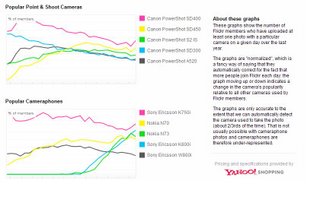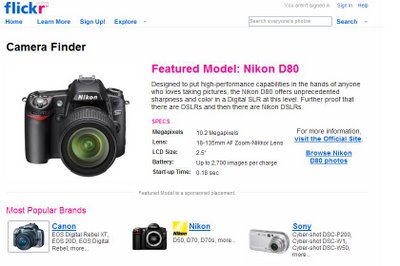
TechMeme just released their new sponsorship model, and their approach is bit different from what we have been seeing on most sites. The typical sponsorship model involves either Google-style AdSense ads or TechCrunch-style sponsorship logos. Both of these are great models; however, I think that the TechMeme model is the best possible model for TechMeme, and it would also work well on other sites.
For anyone not already familiar with TechMeme, it “is an entirely automated web service that looks at what bloggers are talking about, and linking to, and decides what is news based on that analysis.” (Quote from TechCrunch). The sponsors have a place on the sidebar (clearly labeled as the sponsorship section) where the sponsoring company’s most recent blog entry is displayed along with their logo. In other words, to refresh their ad on TechMeme, the company simply needs to add a blog entry, and the new link will propagate to TechMeme via an RSS feed.
I love this model. I almost never click on banner ads or sponsorship logos; however, if I see an interesting blog entry from one of the TechMeme sponsors, I would certainly click on it. I suspect that this model will drive more people to click through the ad, thus driving more traffic from TechMeme to the sponsor than a traditional ad might be expected to generate. The end result is that these type of ads will have more value for the sponsoring companies and TechMeme just might be able to charge more for these ads in comparison to a traditional ad.
Jeff Jarvis, an expert in online advertising, says:
“I like it. It’s relevant; it’s human and not automated; it’s appropriate to the form. And it pays. … I think this works and I’ll be eager to hear the sponsors’ experience. I’d love to have a such a unit here.” (Quote from Buzz Machine).
I will be curious to see how others follow this example or modify it to create similar ads on other sites.


 participating in
participating in 